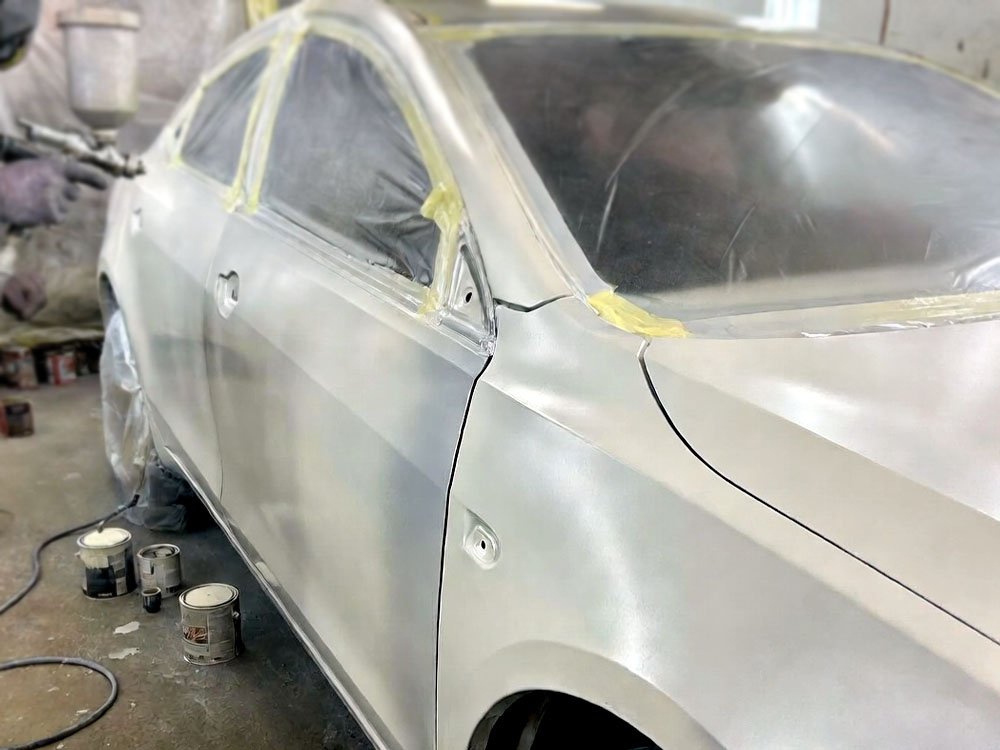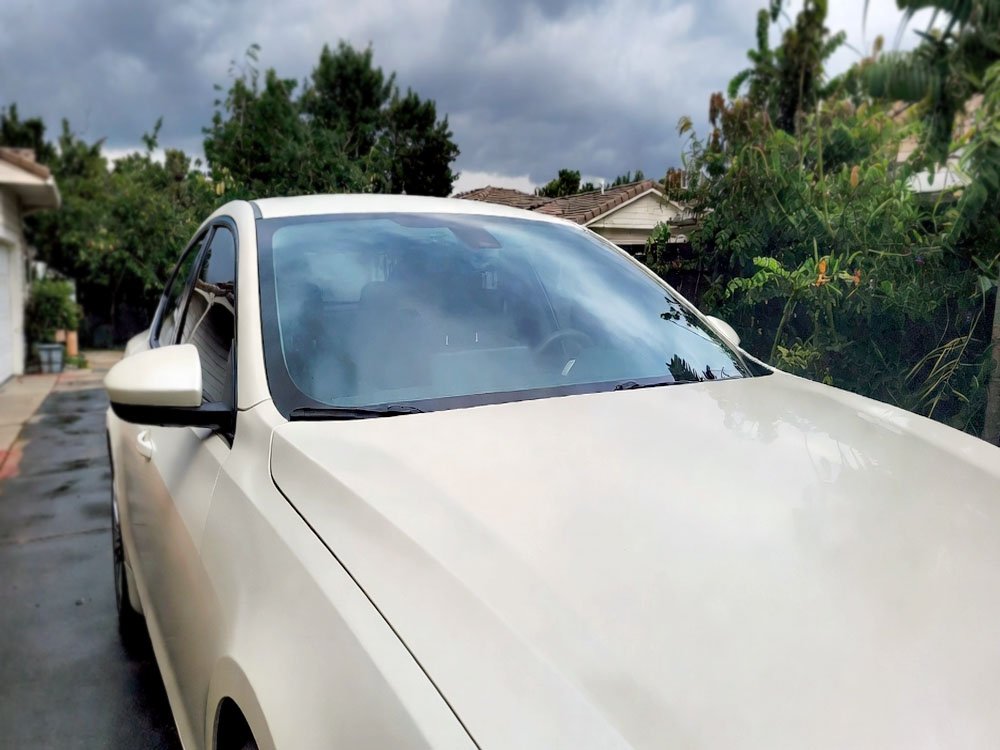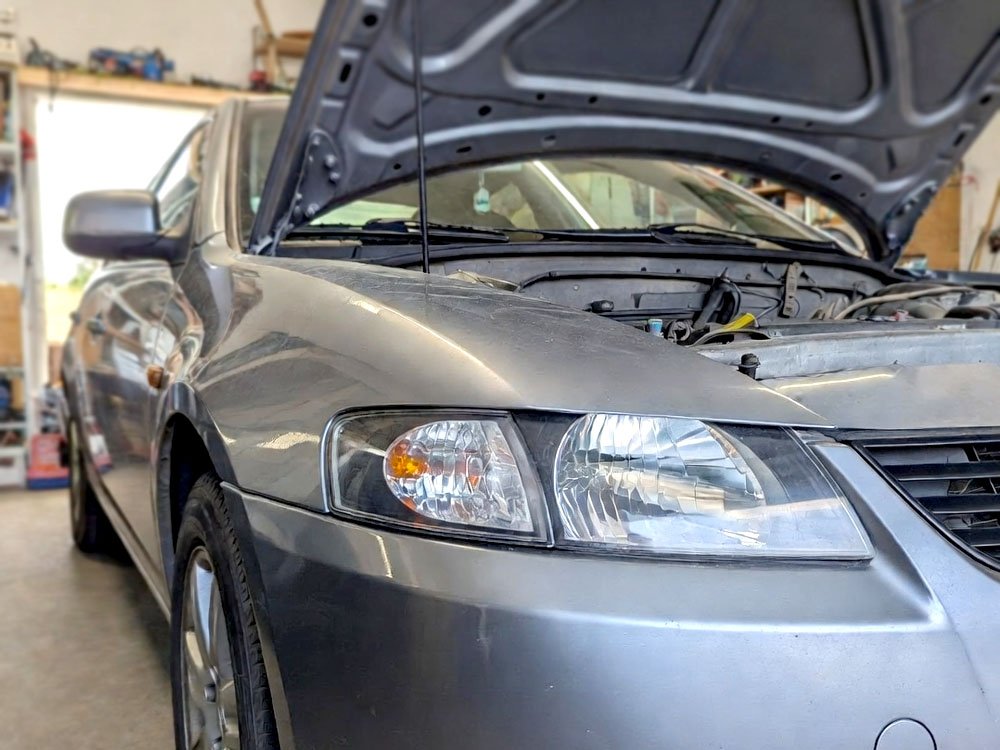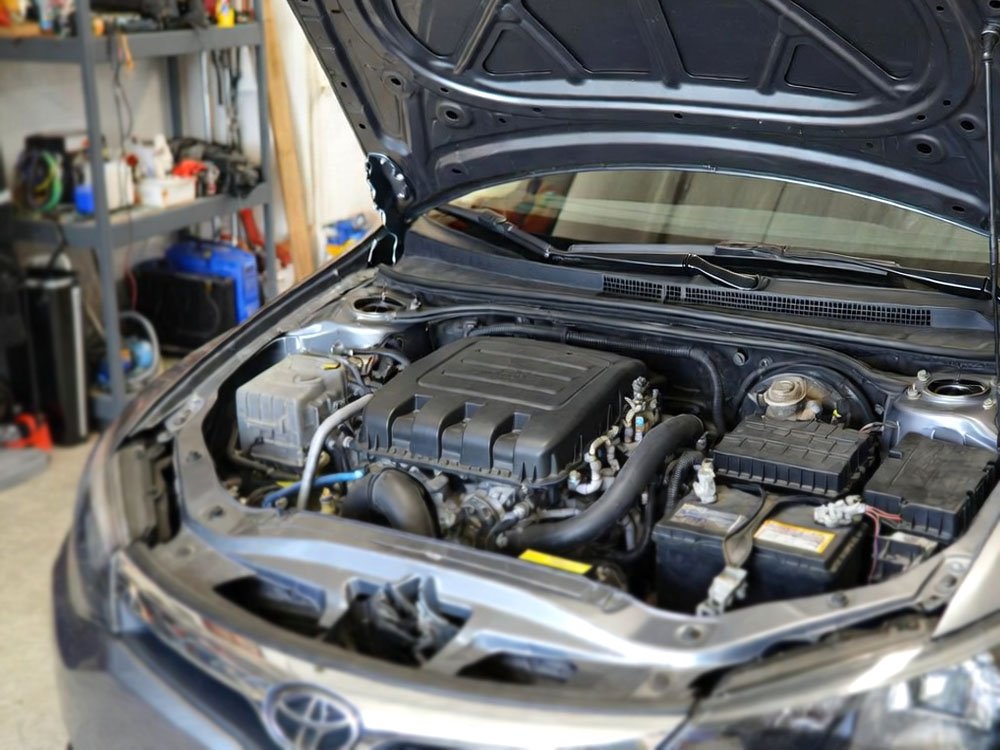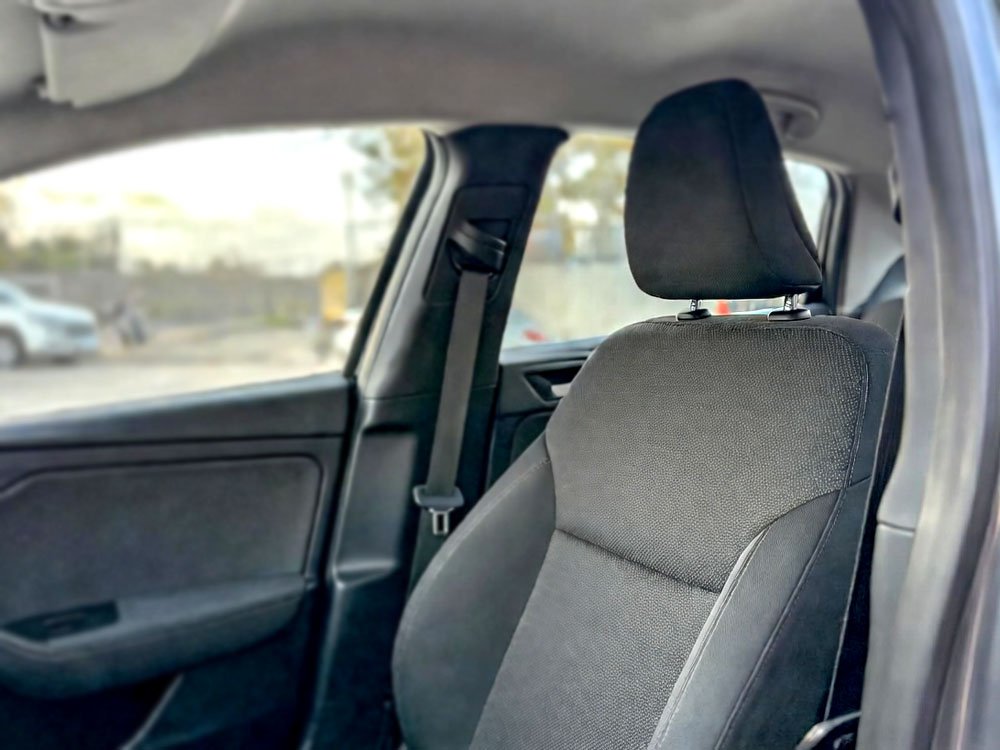To fix a hissing sound in the car AC, check for blockages in the AC system and replace any faulty components if necessary. A hissing sound in the car AC can indicate a refrigerant leak or a problem with the compressor.
It’s essential to address this issue promptly to prevent further damage to the AC system. Neglecting to fix the hissing sound can lead to reduced cooling performance and potential system failure. By identifying and resolving the cause of the hissing sound, you can restore the functionality and efficiency of your car’s AC system.

Credit: tediousrepairs.com
Causes Of Hissing Sound In Car Ac
A hissing sound coming from your car’s AC system can be a sign of underlying issues that need to be addressed. It is important to identify the cause of the hissing sound to ensure the proper functioning of your car’s AC system. In this section, we will discuss the possible causes of the hissing sound in car AC, including a leak in the AC system, a faulty AC compressor, and worn-out AC hoses.
Leak In The Ac System
A common cause of a hissing sound in the car AC is a leak in the system. The refrigerant used in the AC system can leak due to damaged or worn-out seals, fittings, hoses, or connections. When the refrigerant escapes from the AC system, it can result in a hissing sound. Apart from the sound, you may also notice a decrease in cooling performance.
To fix a hissing sound caused by a leak in the AC system, it is essential to locate and repair the leak. Using an electronic leak detector or UV dye can help pinpoint the exact location of the leak. Once the leak is identified, it can be repaired by replacing the damaged components, such as seals, fittings, hoses, or connections. It is important to address the leak promptly to prevent further damage to the AC system.
Faulty Ac Compressor
Another potential cause of a hissing sound in the car AC is a faulty AC compressor. The AC compressor is responsible for compressing and circulating the refrigerant in the AC system. If the compressor is not functioning properly, it can result in a hissing sound. The sound may be more noticeable when the AC is turned on or when the compressor is engaged.
To fix a hissing sound caused by a faulty AC compressor, it is recommended to consult a professional mechanic. They will be able to diagnose the issue accurately and determine if the compressor needs to be repaired or replaced. Attempting to fix a faulty compressor without proper knowledge and tools can lead to further damage to the AC system.
Worn-out Ac Hoses
Worn-out AC hoses can also be a potential cause of a hissing sound in the car AC. Over time, the AC hoses can develop cracks, holes, or loose connections, leading to refrigerant leakage and a hissing sound. The sound may vary in intensity depending on the severity of the hose damage.
To fix a hissing sound caused by worn-out AC hoses, it is necessary to inspect the hoses for any visible signs of damage, such as cracks, holes, or loose connections. If any damage is detected, the affected hoses should be replaced. It is crucial to use high-quality hoses that are compatible with your car’s AC system to ensure proper functioning and prevent future issues.
In conclusion, a hissing sound in the car AC can be a warning sign of underlying issues that require attention. It is important to promptly address the causes of the hissing sound, such as a leak in the AC system, a faulty AC compressor, or worn-out AC hoses. By identifying and fixing these issues, you can ensure the optimal performance of your car’s AC system and enjoy a comfortable driving experience.

Credit: goairservices.com
Methods To Fix The Hissing Sound In Car Ac
Discover effective methods for fixing the hissing sound in your car’s AC system. Follow these steps to easily eliminate the unwanted noise and enjoy a smoother and quieter ride.
Methods to Fix the Hissing Sound in Car ACHave you been experiencing a hissing sound coming from your car’s air conditioning (AC) system? If so, it could be indicative of a problem that requires immediate attention. Fortunately, there are methods available to fix this issue and restore the quiet operation of your car’s AC.Inspecting and repairing AC system leaksOne possible cause of the hissing sound in your car’s AC system is a refrigerant leak. To identify and repair such leaks, follow these steps:1. Inspect for visible signs of refrigerant leaks: Check for any oily residue around the AC system components, such as the compressor, hoses, and fittings. This residue indicates a potential leak.2. Use a UV dye leak detector: Add a UV dye to the AC system refrigerant. The dye will help pinpoint the source of the leak when viewed under UV light. Once the leak is identified, repair it promptly.3. Repair the leak: Depending on the location and severity of the leak, you may need to replace a damaged hose or seal a leaky fitting. If you are not comfortable doing this yourself, consult a professional technician who can perform the repair.Replacing the AC compressorAnother possible cause of the hissing sound is a faulty AC compressor. If the compressor is damaged or worn out, it can produce unusual noises, including hissing. To replace the AC compressor, follow these steps:1. Gather the necessary tools: You will need a wrench or socket set, refrigerant recovery equipment, and a new AC compressor.2. Disconnect the battery: Before starting any work on the AC system, it’s important to disconnect the car’s battery to prevent any electrical accidents.3. Recover the refrigerant: Using the refrigerant recovery equipment, safely remove the refrigerant from the AC system. This is a crucial step to prevent any harmful effects on the environment.4. Remove the old AC compressor: Loosen the bolts or screws securing the old AC compressor and disconnect the electrical connections and refrigerant lines. Replace it with the new compressor, ensuring all connections are properly tightened.5. Recharge the AC system: Once the new compressor is installed, recharge the AC system with the correct amount of refrigerant as specified by the manufacturer.Replacing worn-out AC hosesWorn-out AC hoses can also be a contributing factor to the hissing sound in your car’s AC system. Over time, AC hoses can develop cracks or become loose, causing refrigerant leaks and the subsequent hissing noise. To replace worn-out AC hoses, follow these steps:1. Locate the worn-out hose: Inspect the AC system hoses for signs of wear, such as cracks, bulges, or loose connections.2. Gather the necessary tools: You will need a wrench or socket set, replacement AC hoses, and new O-rings if necessary.3. Disconnect the old hose: Carefully loosen and remove the clamps or fittings securing the old AC hose. Take note of the hose routing to ensure proper installation of the new hose.4. Install the new AC hose: Attach the new AC hose, making sure to properly secure it with clamps or fittings. Replace any O-rings if needed.5. Check for leaks: Once the new hose is in place, inspect the AC system for any potential leaks by using a UV dye or a refrigerant leak detector.By following these methods, you can effectively diagnose and fix the hissing sound in your car’s AC system. Whether it involves inspecting and repairing leaks, replacing the AC compressor, or replacing worn-out hoses, taking prompt action will help restore the comfort and functionality of your car’s AC.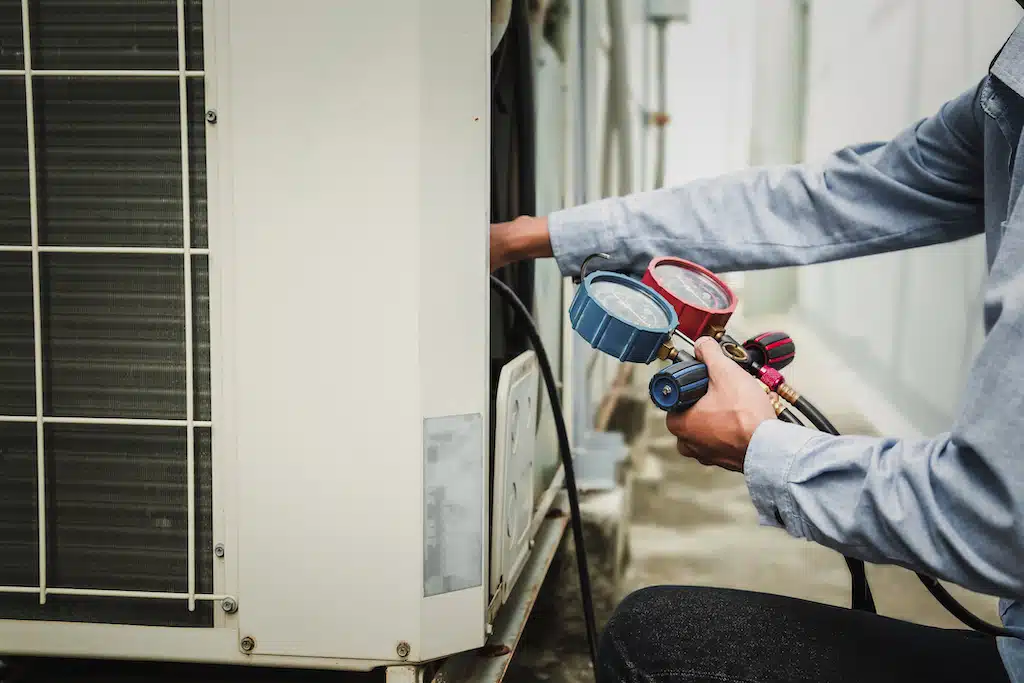
Credit: www.onehourairftworth.com
Conclusion
To resolve the hissing sound in your car’s AC, follow the simple steps mentioned in this blog post. By identifying and fixing common issues like refrigerant leaks, clogged air filters, or faulty fans, you can ensure a smooth and noise-free ride.
Additionally, regular maintenance and inspections will help prevent such problems in the future. Remember, addressing the hissing sound promptly will not only enhance your driving experience but also improve the overall health of your car’s AC system. Happy and peaceful driving!


